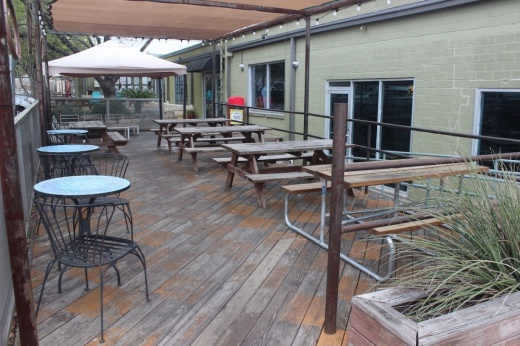The rapid spread of the coronavirus, and social distancing measures implemented by federal, state and local governments to mitigate that spread, have struck a significant blow to the country’s economy. Locally, the March 6 decision by Mayor Steve Adler to shut down South by Southwest Conferences and Festivals, and the follow up March 17 decree to limit gatherings of more than 10 people and prohibit dine-in service at all restaurants and bars have forced small businesses and laborers into a struggle unforeseen only weeks ago.
“Landlords still want to get paid, municipalities still want to get paid, staff still want to get paid, but where is the money going to come from if the economy is near full stop?” said Paul Henry, co-owner of the local Houndstooth Coffee. “Federal, state or local governments have to step up in a big way to help small businesses.”
U.S. President Donald Trump signed a coronavirus relief package on March 18 that ensures free coronavirus testing and paid sick leave to most workers. The federal government is also eyeing another massive relief package reportedly worth $850 billion that could send checks directly to Americans and help small businesses struggling from economic harm caused by the virus. The Small Business Administration has added the coronavirus as a qualifier for small businesses to apply for emergency disaster loans of up to $2 million.
Locally, Austin City Council and the city’s economic development department are scrambling to drum up programs to mitigate the city’s own economic struggles.
City Council is drafting and redrafting a resolution that would give wide-ranging direction to City Manager Spencer Cronk in considering relief efforts. The resolution brought by Council Member Jimmy Flannigan on March 11 initially focused on mitigating the fallout from SXSW. The situation has since rapidly evolved, as has the breadth of the resolution, which now aims to address the harm spreading to various parts of the local ecosystem.
Restructuring hotel occupancy tax expenditures, corporate tax breaks offered by the city, business contracts and permit waivers are all on the table, according to an early draft of the resolution posted to the City Council message board March 19. The resolution also seeks financial assistance for small businesses and workers. However, council members said the city can only do so much.
“I would say any financial assistance [from the city] is going to be a Band-Aid compared to what the federal and state governments need to do,” Mayor Pro Tem Delia Garza told Community Impact Newspaper.
Part of the city’s role will be to continue lobbying the state and federal governments for massive relief packages and directing residents, workers and small businesses to the resources they need, District 4 City Council Member Greg Casar said.
Casar said his office has been working to protect residents and business owners who owe rent on April 1 from evictions, ensure everyone’s utilities are connected and learn more about available relief programs.
“We were given this responsibility by the voters for these sorts of moment,” Casar said. “My entire staff are working extra overtime every day of the week responding to constituent questions and making sure city staff has the support they need. We’re the eyes and ears of the community.”
District 9 City Council Member Kathie Tovo said she was thinking about programs similar to President Franklin Roosevelt’s New Deal, which offered Americans and the economy relief following the Great Depression by hiring workers for jobs that meet immediate community needs. Tovo also said she was working with Austin Energy on providing relief on utility bills, since energy bills are likely to increase with most Austinites having to stay home throughout the day.
“We as leaders need to be figuring out where to steer the city forward and how we can help make sure folks know the city is on top of this,” District 10 Council Member Alison Alter said. “Our ear to the community is really valuable at this time and understanding the roles of City Council and staff.”
Veronica Briseño, director of the city’s economic development department, said her team is working “diligently working to develop the unprecedented path forward.”
The draft of City Council’s resolution remains in flux, but Flannigan, the lead sponsor, said he hopes to have a final version by the start of next week. When City Council meets on March 26, it will be in an unprecedented format, with half the City Council members present in the chambers, seated 6 feet apart, with the other half calling in remotely.
“We’ve never experienced anything like this,” Garza said. “In life, generally, you know when you face something hard and you’re able to get past it you become a little more resilient. I know our community is incredibly resilient. It’s been amazing to see the efforts by neighbors and friends and nonprofits coming together and helping each other. We’re taking it day by day.”





